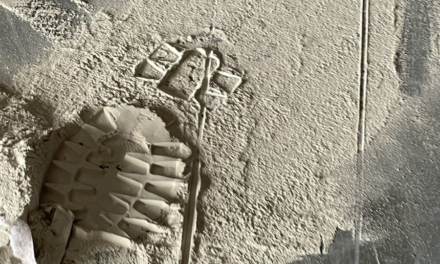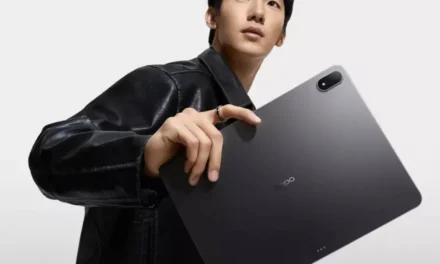A regulation that might ban TikTok within the US doesn’t violate the Structure, a panel of judges unanimously — and forcefully — dominated on Friday. The choice suggests TikTok, which has evaded makes an attempt at a ban or sale for over 4 years, actually might be pressured out of the US, except its Chinese language father or mother firm, ByteDance, sells it off by January nineteenth. TikTok has indicated it can take its struggle to the Supreme Court docket, and President-elect Donald Trump has beforehand promised to avoid wasting the app, although he’s been fuzzy on how. However because the deadline approaches, it faces an uphill authorized battle.
Gautam Hans, a Cornell Regulation College professor and affiliate director of the college’s First Modification Clinic, thinks it’s unlikely the Supreme Court docket will upend the DC Circuit’s opinion. “Why would the Supreme Court docket take this case if they’re already fairly deferential to nationwide safety basically? There’s no combined dissent, this was a bipartisan, congressional motion,” he says.
Plus, Hans says, the bulk opinion is written to “insulate itself from reversal” by assuming so much in TikTok’s favor and nonetheless deciding in opposition to it. For instance, the court docket says that its opinion is totally based mostly on the general public file — not the labeled proof that satisfied many lawmakers to go the invoice and which TikTok objected to.
Regardless of the broad authorities consensus, some on-line speech advocates say the ruling units a dangerous precedent, significantly if it results in a TikTok ban as an alternative of a sale. “The federal government can’t shut down a whole communications platform except it poses extraordinarily critical and imminent hurt,” mentioned American Civil Liberties Union spokesperson Patrick Toomey. “And there’s no proof of that right here.”
Right here’s why the court docket thinks it’s authorized to (probably) kick one of many web’s largest social networks out of the US.
Speech versus safety
TikTok made a number of claims in opposition to the federal government, saying it unlawfully singled out the corporate and violated its First and Fifth Modification rights. The court docket dismissed these considerations, but it surely spent essentially the most time on the First Modification problem — concluding that any hurt to TikTok and its customers was outweighed by nationwide safety considerations.
TikTok argues that, for a social platform like its app, a ban would quantity to suppressing speech for it and its US-based customers. However the authorities argues {that a} Chinese language father or mother firm places these customers in danger. It makes two fundamental claims: that the Chinese language authorities may entry People’ information; and that it may make TikTok covertly manipulate its advice algorithm, shaping what People see.
The court docket agreed with TikTok that this can be a First Modification difficulty — rejecting authorities claims that, amongst different issues, TikTok’s overseas possession ought to strip it of speech protections. The bulk additionally agreed to think about strict scrutiny, which units the very best bar for deciding whether or not the federal government has a urgent want and a well-tailored answer if it’s going to probably restrict speech.
These have been about the one First Modification wins TikTok chalked up. For one factor, the court docket didn’t decide strict scrutiny was essentially required. A majority opinion, written by Choose Douglas Ginsburg, says that’s a troublesome query — however the court docket didn’t have to reply it as a result of TikTok’s claims would fail it doesn’t matter what. (Chief Choose Sri Srinivasan wrote his personal concurring opinion that conclusively set a decrease bar of intermediate scrutiny.)
“The Act was the end result of intensive, bipartisan motion by the Congress and by successive presidents.”
For one more, the court docket proved reluctant to overrule Congress and different officers who raised considerations about TikTok. “The Act was the end result of intensive, bipartisan motion by the Congress and by successive presidents,” the bulk writes. “It was rigorously crafted to deal solely with management by a overseas adversary, and it was a part of a broader effort to counter a properly substantiated nationwide safety menace posed by the PRC.” Below these circumstances, the regulation may “stand up to essentially the most looking assessment.”
Digital Frontier Basis civil liberties director David Greene, who wrote an amicus temporary in help of TikTok, mentioned making use of strict scrutiny was the suitable name. However he criticized the general evaluation as “relying closely on hypothesis about attainable future harms.” (For now, there’s little public proof that the Chinese language authorities engaged in information entry or platform manipulation at any important scale; given its shut ties to Chinese language firms, nevertheless, it’s terribly troublesome to rule that risk out.)
TikTok additionally argued that lawmakers had ulterior motives for the ban, noting that some mentioned content material they discovered objectionable on TikTok like what they perceived as a excessive stage of pro-Palestinian content material. However the judges didn’t discover that to be a disqualifying issue.
Nor did it settle for that the divest-or-ban rule amounted to censoring TikTok’s speech or that of its customers. “Content material on the platform may in precept stay unchanged after divestiture, and other people in the US would stay free to learn and share as a lot [People’s Republic of China] propaganda (or another content material) as they need on TikTok or another platform of their selecting,” reads the ruling. “What the Act targets is the PRC’s capacity to control that content material covertly.”
In reality, the ruling argued {that a} TikTok divest-or-ban rule outright promotes the values of the First Modification. “Certainly, the First Modification precludes a home authorities from exercising comparable management over a social media firm in the US,” the court docket writes. “Right here the Congress, because the Government proposed, acted to finish the [People’s Republic of China’s] capacity to regulate TikTok. Understood in that manner, the Act really vindicates the values that undergird the First Modification.”
“Fortress America”
Katie Fallow, deputy litigation director at Columbia College’s Knight First Modification Institute, says that “sounds good in principle however is problematic in observe. Almost definitely the precept could be used to censor US folks with unpopular views that may align with these of overseas states.”
The court docket’s framing is “Orwellian,” based on Techdirt founder Mike Masnick. “It claims that banning TikTok, and the speech of hundreds of thousands of People on the platform, in some way enhances free speech. It is a full inversion of First Modification values. The First Modification protects in opposition to authorities censorship and management of personal speech, it doesn’t justify such censorship within the identify of stopping overseas affect. The court docket is basically arguing that violating the First Modification is critical to reserve it, which is absurd.”
College of Chicago Regulation College professor Genevieve Lakier worries the ruling will “flip the First Modification into Fortress America.” Overseas authorities manipulation is “worrying,” she writes on Bluesky, however so is home authorities intervention in speech. “The purpose of free speech regulation needs to be to navigate a pathway [between] these two nice risks.”
Yanni Chen, coverage counsel on the nonprofit Free Press, mentioned in a press release that the group is “upset to see this court docket undermine People’ First Modification proper to data and entry in favor of the federal government’s overbroad pursuits in nationwide safety.” Chen says the regulation is “on par with practices by repressive regimes that the US has traditionally criticized for his or her disregard of democratic ideas.” To this point, nevertheless, the court docket strenuously disagrees.
Singling out TikTok
On high of its First Modification claims, TikTok has mentioned the regulation quantities to a invoice of attainder, illegally concentrating on and punishing it particularly. The court docket definitively dismissed the declare. It discovered the regulation satisfies nonpunitive goals and notes that Congress created a framework for probably making use of the divest-or-ban rule to different apps. TikTok’s criticism about lawmakers having questionable motives, in the meantime, “hardly deserves dialogue.”
George Washington College Regulation College professor Mary Anne Franks, who sits on a content material moderation advisory panel for TikTok that doesn’t play a job on this case, says the court docket’s dismissive strategy to this motivational check is regarding. “The invoice of attainder provision is de facto necessary as a result of it retains Congress from coming after any one among us in a very single-minded, scapegoating sort of manner,” she says. “It’s actually meant to name consideration to any try by Congress to single out a sure occasion and say, did you do that since you simply don’t like this occasion?”
Critics of the invoice have additionally repeatedly identified that overseas adversaries can simply purchase American information from poorly regulated information brokers. However right here, the court docket notes that Congress not too long ago handed a invoice banning information brokers from promoting People’ delicate data to the identical set of overseas adversary international locations. Whereas the opinion says the TikTok invoice’s survival doesn’t rely upon the info dealer regulation present, it “helps our conclusion that the Act displays a good-faith effort on the a part of the Authorities to deal with its nationwide safety considerations.”
Fifth Modification arguments
TikTok’s backup constitutional problem was the Fifth Modification — particularly, its assure of equal safety beneath the regulation and its proscription of seizing non-public property with out compensation. But it surely additionally failed. The judges say TikTok’s equal safety claims quantity to a criticism that solely it was particularly named within the statute, a transfer the court docket decided was affordable as a result of it furthers a governmental curiosity. “By naming TikTok within the Act, the Congress ensured TikTok-related dangers have been addressed promptly.” The opinion additionally notes that TikTok had protracted discussions with Congress and different elements of the federal government, saying that, in some methods, it really “acquired extra course of” than an organization that wasn’t singled out.
The court docket additionally agrees with the federal government that the invoice isn’t illegally taking non-public property from the corporate, since ByteDance has the prospect to generate income off of a invaluable asset. TikTok views divestiture as impractical, however that’s primarily as a result of the Chinese language authorities has forbidden a sale — which the court docket says isn’t actually their concern. “TikTok would have us flip the Takings Clause into a way by which a overseas adversary nation could render unconstitutional laws designed to counter the nationwide safety threats introduced by that very nation,” the court docket concluded.
Siloing information isn’t sufficient
Earlier than the present regulation handed, TikTok spent years making an attempt to silo its information in a manner that might fulfill nationwide safety considerations, signing a take care of Oracle as a part of a plan known as Challenge Texas. However the court docket repeatedly slapped down the concept these sorts of mitigation measures could be an answer. “The issue for TikTok is that the Authorities exercised its thought-about judgment and concluded that mitigation efforts wanting divestiture have been inadequate,” it says. For the reason that authorities says it could possibly’t be assured it has sufficient visibility into the corporate to really monitor it and might’t belief within the firm’s compliance, “the court docket can neither fault nor second guess the Authorities on these essential factors.”
The judges say that TikTok’s mitigation plan itself would elevate a bunch of latest points. “Entangling the U.S. authorities within the each day operations of a significant communications platform would elevate its personal set of First Modification questions. Certainly, it might be characterised as inserting U.S. authorities ‘officers astride the movement of [communications],’” they write. “Divestiture poses no such problem.”
On one hand, this view emphasizes simply how a lot the court docket is counting on Congress and the manager department’s nationwide safety assessments. The opinion says that, even when the judges agreed with TikTok on each factual dispute, it might be “wholly inappropriate” to simply accept its proposed alternate options to a sale “after Government Department officers ‘performed dozens of conferences,’ thought-about ‘scores of drafts of proposed mitigation phrases,’ and engaged with TikTok in addition to Oracle for greater than two years” in an try to deal with safety considerations.
Alternatively, it places Trump’s promise to avoid wasting the app in an much more strained place. Trump has marketed himself as powerful on China, and all the underpinning of the TikTok invoice and the court docket’s justification for upholding it rests on the federal government’s personal evaluation of its nationwide safety threat. He’s been quick on specifics of what he’d do to spare the app, telling NBC Information he’ll “make it in order that different firms don’t develop into a fair greater monopoly.” Saving TikTok may imply instructing the DOJ to not implement the regulation, assuming SCOTUS doesn’t strike it down. Or it may imply discovering a purchaser for the app — however that might require China’s authorities to truly permit promoting it.





